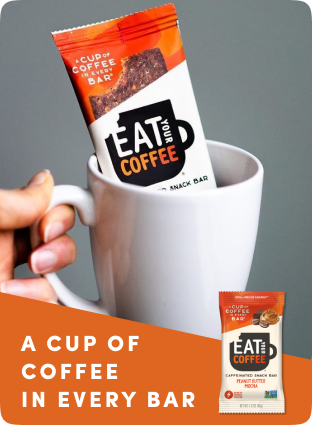A cup of coffee, especially in the morning or late evening, is a darling for many people. It helps boost their energy and keep them alert.
However, for some people, the mere thought of a steaming cup of java can trigger a familiar physiological response—a trip to the bathroom. This can be quite disturbing if you are busy or out of the house.
But what exactly causes this gastrointestinal urgency? And does it happen to everyone?
Well, when it comes to coffee’s bathroom effect, science hasn’t found the exact elements in coffee that trigger your urge to poop. However, elements like acidity, caffeine, and exorphins, among others, together play a major role.
So, so how does it happen?
How Does Coffee Affect Your Colon?

Coffee contains various compounds, including caffeine, that can stimulate the muscles in the gastrointestinal tract. When consumed, caffeine promotes the release of hormones such as gastrin and cholecystokinin. These hormones, in return, stimulate the colon and increase intestinal contractions.
The contractions help propel stool through the digestive system, leading to an increased urge to have a bowel movement.
Usually, caffeine alone doesn’t have these effects (as seen with energy drinks). But combined with other compounds in coffee, most people will experience the urge. In fact, even decaf coffee also has the same effect, although not as strong.
This means that while caffeine is a culprit, it’s not the only one. Other compounds in your coffee increase the urge.
Does Coffee Make Everyone Poop?
The simple answer is a big No! While coffee has a reputation for its potential laxative effect, it is important to note that not everyone experiences this phenomenon. The response to coffee consumption varies among individuals, and some people may not have a noticeable bowel movement after enjoying a cup.
Studies show that around 29% of people who take coffee experience this pooping urge. This means that the rest, 71%, don’t. Also, of the 29%, 63% of them are women.
Why Coffee Causes you to Poop

1. Health Conditions and Hormones
Individuals with pre-existing gastrointestinal conditions, such as irritable bowel syndrome (IBS), may be more susceptible to the laxative effects of coffee. This means that they will experience stronger effects than other people.
Additionally, hormones can play a role in gastrointestinal motility. Research suggests that coffee can stimulate the release of hormones like motilin, which increases bowel contractions and promotes bowel movements.
2. Too much Acidity
The acidity of coffee can influence the digestive process. Acidic compounds in coffee, such as chlorogenic acid, may increase gastric acid secretion, triggering a response in the intestines.
The increased acidity can stimulate the gastrointestinal tract, resulting in a laxative effect. Also, too much acid in your stomach might hinder proper digestion. And when food is not broken down well, it might lead to diarrhea, thus the restroom rush effect.
3. Adding Milk or Creamer
Adding milk or creamer to coffee might affect its impact on bowel movements. For instance, lactose intolerance or sensitivity to dairy products can lead to gastrointestinal discomfort, flatulence, bloating, or even diarrhea. As such, you might mistake this as a coffee-induced effect, while in actual sense it’s the effect of lactose.
So, if you notice persistent trips to the bathroom after every cup of a creamy coffee, lactose might be to blame. In fact, research shows that around 65% of people experience difficulties when it comes to digesting lactose.
4. Temperature
The temperature of your coffee might also contribute to its laxative effect. Warm liquids, in general, can stimulate bowel movements by promoting muscle contractions in the digestive system. Therefore, the warmth of the coffee itself could contribute to the urgency to visit the bathroom.
5. Artificial Sweeteners
Some coffee drinkers prefer to sweeten their beverage with artificial sweeteners. These additives, particularly sugar alcohols like sorbitol and mannitol, are known to have a laxative effect when consumed in large amounts. If coffee contains such sweeteners, they may contribute to the bowel-stimulating effect experienced by some individuals.
How to Stop the Bowel Movements After a Cup of Coffee?
The truth is, if it’s the compounds found in coffee that triggers those bowel movements, it might be hard to stop it. This is because whether you take caffeinated or decaf coffee, the effects will always be there.
However, if you are dealing with issues like lactose intolerance, you can always avoid milk or creamer additives to your coffee. Also, you can avoid artificial sweeteners, which have a laxative effect, and coffee with too much acidity.
Best Alternative for your Cup of Coffee
Finding an alternative to that cup of coffee is the next best solution. You need something that will offer you the desired effects (energy boost) without causing any discomfort to your stomach.
EatYourCoffee energy bars undoubtedly fit the bill. How?
These caffeinated energy bars have the amount of caffeine as a cup of coffee but are more friendly to your stomach. Firstly, you’ll be avoiding artificial sweeteners, lactose, as well as temperature issues.
Also, they come in various options, both vegan-friendly and gluten-free. And if you want a source of energy boost, you can take with you anywhere, these energy bars are your best bet.
Lastly, these energy bars are also ideal for pre and post-workout sessions. They give you the required energy for those intense workouts and speed up your muscle recovery afterwards.
Want to give these energy bars a shot? Get yourself a FREE sample pack. All you need is to use the Discount code TRY to enjoy our best coffee bars. Your only cost will a $3 shipping fee.
See Related: Reasons Why You Should Eat Your Coffee
Conclusion: Why Does Coffee Make You Poop?
If you find that coffee consistently leads to uncomfortable bowel movements or digestive issues, it may be worth exploring alternatives or adjusting your consumption habits. Consider trying different types of coffee, such as decaffeinated options, or experimenting with lower caffeine levels.
Additionally, paying attention to the other factors, such as the addition of milk or creamer, artificial sweeteners, and the temperature of your coffee, can help you understand which elements might be contributing to your body's response. If you have pre-existing gastrointestinal conditions, it is advisable to consult with a healthcare professional.
FAQS
Does every type of coffee make you want to poop?
Yes! However, some types are more likely to cause this effect than others. Caffeinated coffees tend to be the most potent in terms of producing laxative effects. Decaffeinated options might have a lesser impact on digestion and bowel movements but may still contain other compounds that contribute to such sensations.
How long does the bathroom effect last?
The duration of this effect depends on individual tolerance to coffee and other factors. Generally, it can last up to several hours after consuming a cup of coffee.
Can eating food stop these effects?
Not really. While some people suggest that eating food might help reduce the laxative effects of coffee consumption, it's not entirely true. When you eat food, your colon gets stimulated. This means that eating won't have much effect in reducing the pooping urge.




